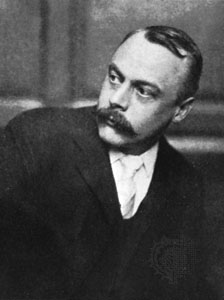A Quote by Eric Metaxas
The family trees of Karl and Paula Bonhoeffer are everywhere so laden with figures of accomplishment that one might expect future generations to be burdened by it all. But the welter of wonderfulness that was their heritage seemed to have been a boon, one that buoyed them up so that each child seems not only to have stood on the shoulders of giants but also to have danced on them.
Related Quotes
You have ... been told that science grows like an organism. You have been told that, if we today see further than our predecessors, it is only because we stand on their shoulders. But this [Nobel Prize Presentation] is an occasion on which I should prefer to remember, not the giants upon whose shoulders we stood, but the friends with whom we stood arm in arm ... colleagues in so much of my work.
Vowels were something else. He didn't like them and they didn't like him. There were only five of them, but they seemed to be everywhere. Why, you could go through twenty words without bumping into some of the shyer consonants, but it seemed as if you couldn't tiptoe past a syllable without waking up a vowel. Consonants, you know pretty much where you stood, but you could never trust a vowel.
Now there are heavy houses everywhere and more of them are being built. In fact, it is only when more houses are being constructed that some countries consider their economics healthy. Yet each house is a heavy footprint on the Earth. Just as all our possessions represent-if we cannot learn ways of sharing them-a weight and clutter that often means the faces of future generations will look up into darkness and the pressure on the Earth of "things."
We might as well expect to grow trees from leaves as hope to build up a civilization or a manhood without taking into consideration our women and the home life made by them, which must be the root and ground of the whole matter. Let our girls feel that we expect something more of them than that they merely look pretty and appear well in society. Teach them that there is a race with special needs which they and only they can help; that the world needs and is already asking for their trained, efficient forces.
It always seems to me that one of the saddest things about the death of a literary man is the fact that the breaking-up of his collection of books almost invariably follows; the building up of a good library, the work of a lifetime, has been so much labour lost, so far as future generations are concerned. Talent, yes, and genius too, are displayed not only in writing books but also in buying them, and it is a pity that the ruthless hammer of the auctioneer should render so much energy and skill fruitless.
When a mathematician engaged in investigating physical actions and results has arrived at his own conclusions, may they not be expressed in common language as fully, clearly, and definitely as in mathematical formulae? If so, would it not be a great boon to such as well to express them so -- translating them out of their hieroglyphics that we might also work upon them by experiment?
When a child becomes an adult . . . the elders are fearful. And for good reason . . . not we but they are the germinators of future generations. Will they leave us behind as we did our parents? Consign us to neatly paved retirement villages? Trample us in the dust as they go flying out to their new galaxies? We had better tie them down, flagellate them, isolate them in the family cocoon, . . . indoctrinate them into the tribal laws and make sure they kneel before the power of the elders.
...Bin Laden's quotes from the Quaran resonated in my brain: "When you meet the unbelievers, strike them in the neck." "If you do not go out and fight, God will punish you severely and put others in your place." "Wherever you find the polytheists, kill them, seize them, besiege them, ambush them." "You who believe, do not take the Jews and Christians as friends; they are allies only to each other. Anyone who takes them as an ally becomes one of them.
When news of the first plane's hitting the World Trade Center reached them, bin Laden's followers exploded with joy. But shrewder members of al-Qaeda and the Taliban leadership in Afghanistan realized that the attacks might not be the stunning victory that bin Laden, and many in the West, took them to be.



































